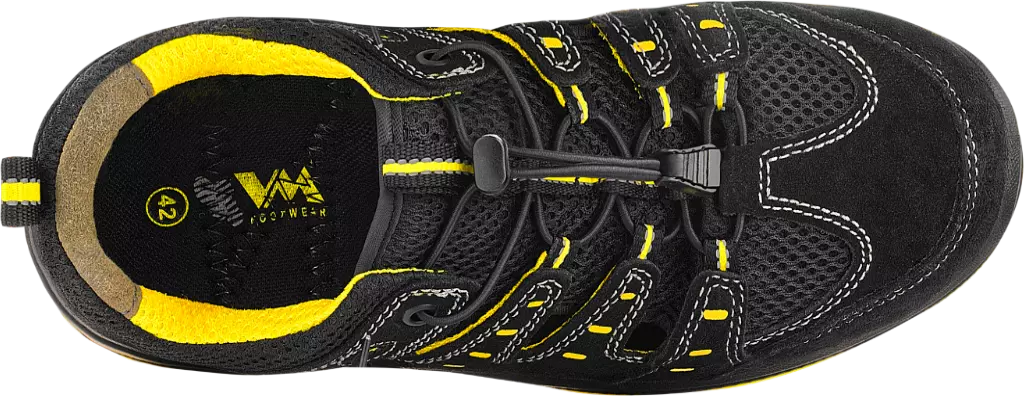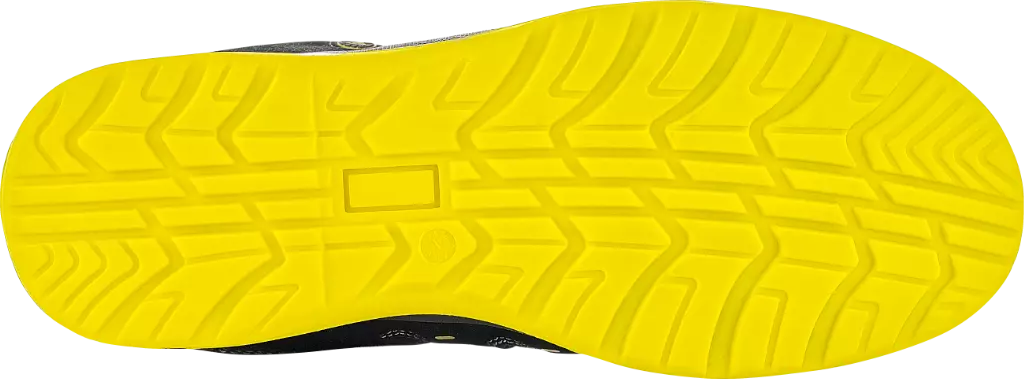

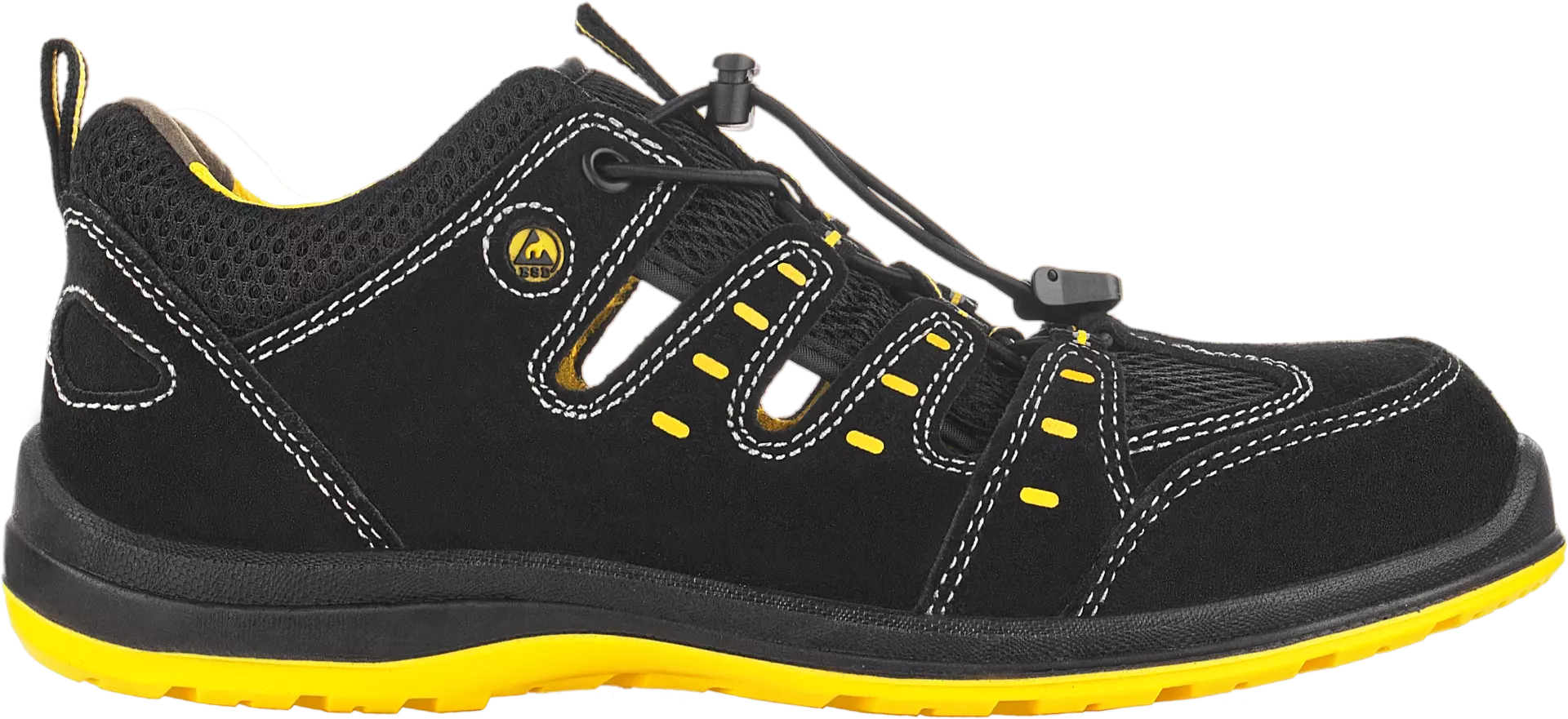
Features You'll Love
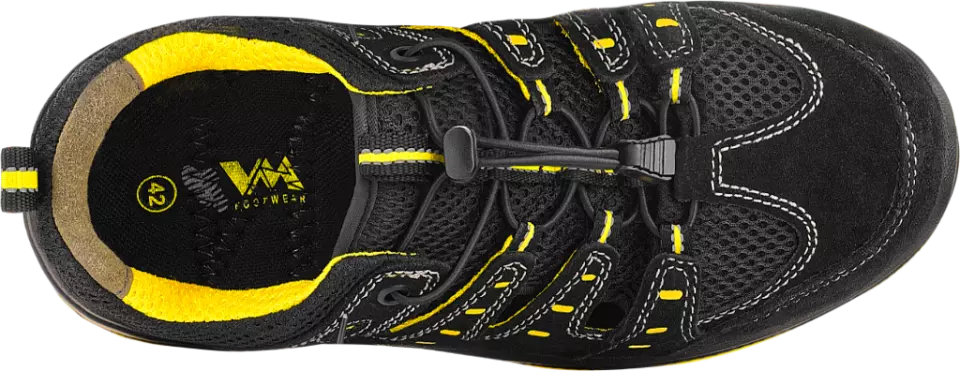
Liner Material · Fabric
EN ISO 20345 · CR
The interior material that lines the inside of the shoe, affecting comfort, moisture management, breathability, and temperature regulation during wear.
Provides protection against cutting hazards to the upper part of the foot. This footwear is made with a cut-resistant material to protect you from sharp objects like glass, metal, or tools in your work environment.
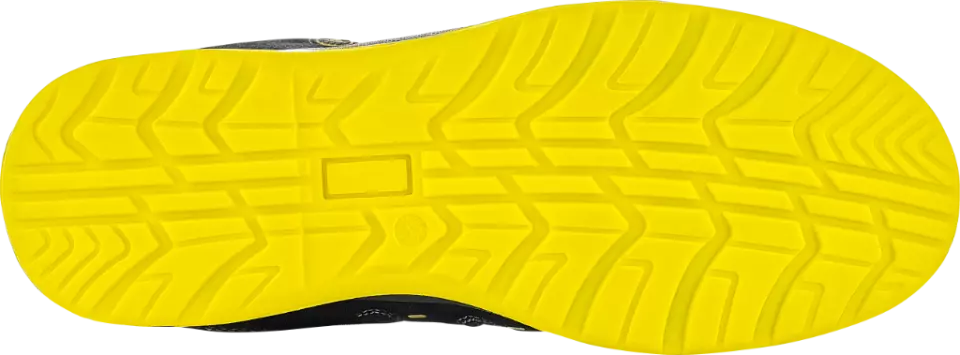
Outsole Properties · Anti Slip
EN ISO 20345 · S1
Anti-slip soles provide superior grip, keeping you safe and steady on challenging surfaces.
Provides basic protection with a 200-joule impact-resistant toe cap, a fully enclosed and energy-absorbing heel, and antistatic properties. Ideal for indoor work and dry environments where there's a risk of falling objects.
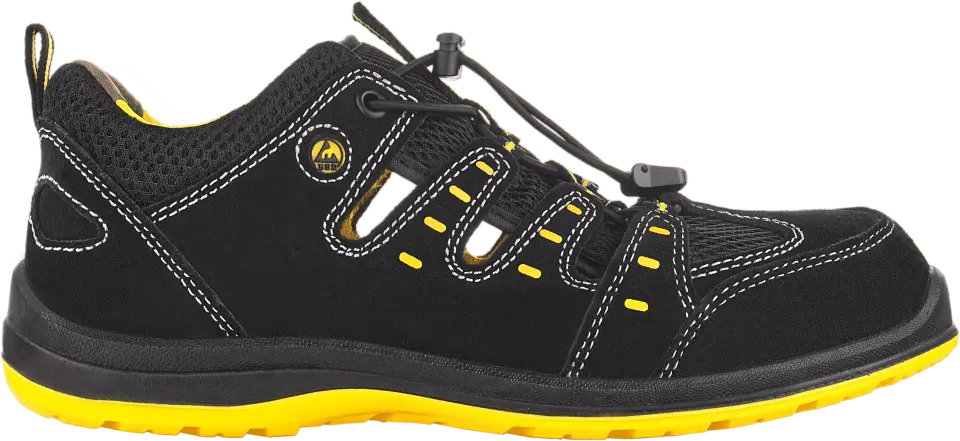
Outsole Properties · Shock Absorbing
Shock-absorbing soles provide cushioned comfort, reducing impact and foot fatigue for all-day wear.

EN 61340-5-1 · Electrostatic Discharge Antistatic
Guards the product’s sensitive electronics against damage from static electricity. This protection during manufacturing and handling prevents hidden component failure, ensuring your device works reliably and has a longer operational life.
VM Footwear
MEMPHIS Safety Sandals, S1, Black/Yellow
MEMPHIS Safety Sandals, S1, Black/Yellow
(24)
52,68 €
Choose size
Shipping fee is 7,95 € for orders under 80,00 €
Features You'll Love

Liner Material · Fabric
EN ISO 20345 · CR
The interior material that lines the inside of the shoe, affecting comfort, moisture management, breathability, and temperature regulation during wear.
Provides protection against cutting hazards to the upper part of the foot. This footwear is made with a cut-resistant material to protect you from sharp objects like glass, metal, or tools in your work environment.

Outsole Properties · Anti Slip
EN ISO 20345 · S1
Anti-slip soles provide superior grip, keeping you safe and steady on challenging surfaces.
Provides basic protection with a 200-joule impact-resistant toe cap, a fully enclosed and energy-absorbing heel, and antistatic properties. Ideal for indoor work and dry environments where there's a risk of falling objects.

Outsole Properties · Shock Absorbing
Shock-absorbing soles provide cushioned comfort, reducing impact and foot fatigue for all-day wear.

EN 61340-5-1 · Electrostatic Discharge Antistatic
Guards the product’s sensitive electronics against damage from static electricity. This protection during manufacturing and handling prevents hidden component failure, ensuring your device works reliably and has a longer operational life.
Product description
safety sandals, with composite toe cap, Non metallic, suede leather Velour, ESD, PU/PU sole - black
